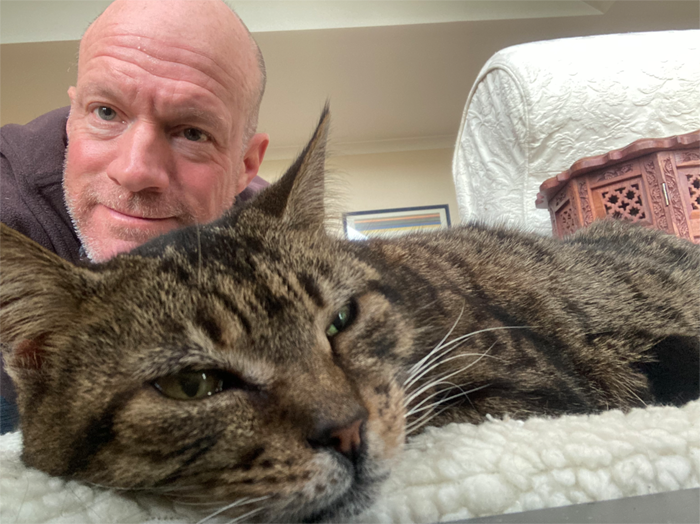November 2022 - is the fat lady singing yet? & one slump
I’m not sure I need to continue a quarterly blog, but the past three months have been interesting, and really very good; with one (grim) blip which was, in all likelihood, caused by the extreme heat conditions clashing with the biggest test yet - a test I (understandably) failed. And, instead of 1-2 bad days, it was the best part of 2 weeks. Ouch…. but - I brought it on myself. It was “optional”.
But that was mid-August. The trigger was doing 3 “races” (!) in a week (jog / walking them - it’s orienteering, not pure running), the first two were OK (I even won one), but the final one - on my birthday! - in 28degree heat, no shade, an hour on my feet, & my HR going up to 160 - 170+, was too much. To compound this, I spent the next day standing up (mostly) at our local music festival in continuing heat (with beers); & the FOLLOWING day, we walked up a Munro - Ben Chonzie - 10 miles, and 800m of climb, 6.5 hours. Too much over those three days….. I started feeling terribly “tired” the whole time, but (typical denial!) said ”It’s only tired! I’m fine! Being tired is normal”. Sadly, after 2-3 days of denial, it wasn’t just tiredness, & the hideous “brain wrong” / fog / clamp / malaise / empty feeling of being lost & hopeless had returned.
I did recover, my confidence shattered, and I slowly re-started my activities, with no further record heatwaves or insanely hot “races” to contend with. Unsurprisingly (given my usual pattern of recovery from crashes during postviral illness spells), I got back to “baseline” (*) within a couple of weeks. Though, as always, I felt I wouldn’t, & that I had, again, “blown it” (sigh).
And so on. September saw the planning of the Scotland #MillionsMissing (for ME Action) take place outside Scottish Parliament, Holyrood, delayed two weeks due to the Queen’s death. I’d co-organised the Bristol demo in 2018, and assisted in 2019, both times playing my guitar. This went really well. Facebook post here
ME Action Scotland, #MillionsMissing demo, Holyrood, Edinburgh September 2022
I’ve been rock climbing, more & more, and in late October I went to my happy place, Kalymnos, for my 8th or 9th (!) rock climbing trip there (as I’ve always said, if Carlsberg did climbing trips…..). I’ve been doing a fair bit of outdoor & indoor climbing, slowly getting better & stronger / more confident. But on Kalymnos, I felt like a Phoenix rising from the ashes. I climbed my hardest routes (6b+ / 6c), since 2017. Amazing. And so happy.
Telendos Island from Massouri. The view to die for.
Running & cycling are still a little problematic. My HR goes up very high. 150 - 170, within 10 mins. So I’m jogging walking ; 60 secs on , 60 secs off. 20 - 40 mins. No symptoms, no PEM - any payback would be completely unacceptable, and I would ramp it back. This is NOT G.E.T., and, as I say, I will only continue if there are no consequences whatsoever from my exertions. Hiking up to 12km in the hills seems absolutely fine, so this is a good thing, & I will continue (I am of the firm belief that, if you can do a certain amount without any payback at all, you should. Lying around the whole time / over resting isn’t good; if you can - and *only* if you can - move, get the body / brain / blood circulating & moving). (100% realise many with ME/cfs cannot do this, & I empathise, having been in the same position in Feb - April).
At some point I need to start seeing if I can go further. Before my Oct 2021 crash, my HR was, it seems, very high during hard running. I was well, though, so that was fine. Apparently. But this means that, as & if/when I continue improving, at some point, I *should* be able to achieve this again. No rush, though. I will continue doing low key orienteering events (“races”), and walk the bits that I find are a bit tough, keeping one eye on my Garmin for my HR.
I’m not so busy with ME/CFS work nowadays. All my roles are gone, for the first time in nearly 7 years. That’s good, though. I’m still involved with ME Action Scotland &, after the work put in to execute MillionsMissing successfully, I feel a great affinity with my fellow volunteers, all of whom I admire greatly. So I will keep my hand in there!
My video from August 2021 remains my finest & last word on the management of my condition. Please watch & share, and I hope it helps; always happy to answer questions on it. One thing about it that may come across too “strict” is, “resting on your good days as well as your bad”. I do not mean, you’ve got to rest ALL day EVERY good day! I just mean, on a good day, take *some* time out to do some relaxing. The tendency, on a good day, is to “burn on through” & get in a “full day” like a “normal person”. I made this mistake loads of times. Vastly better to do a morning of “stuff”, then chill, say for 2 hours post lunch, then have renewed energy for the afternoon. Get to bedtime tired in a “normal” way - not frazzled / “wired” / headachy. Then…. maybe … one good day may become two.
Good luck, my wonderful ME/CFS / LC friends. I stand with you as always. I’m still around!
























